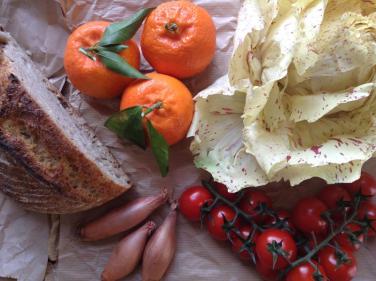
When we talk about San Sebastian, there is one topic we absolutely cannot get away with: gastronomy. The bar hopping, the pintxo, the Michelin-starred restaurants – but not many outsiders know that there is a strong backbone to this renowned food culture. Gastronomic societies, are their unique men’s cooking clubs, and have been central to the city’s culture and identity, not only to their food tradition. Indeed, the signs saying ‘Privado’ in the dark corridors between pintxos bars become visible only after you start saying Agur! to the Basque natives and one of the locals eventually tells you about the closed community. Starting as a gathering place of workers from rural areas to live some of the good aspects of communal life in the city, sociedades have been playing an integral role in the community and culture of Donostia. Particularly under the Franco regime, it served as the centre point to preserve Basque language and culture, particularly its culinary tradition. Many traditional and dying out recipes were rescued and passed on, and innovation flourished as people have been keen to experiment with their ingredients to create new dishes.
A significant characteristic of sociedades is that their constitution traditionally prohibits any political discussion on the premises. While one could argue that the act of gathering is already political, the prohibition of political discussion is interesting as it, as a result, protected the space to continue being an active and valid place for discussions of all kinds. This is highly suggestive in the contemporary society where everything tends to be politicised to attract people’s attention and to ‘sounds right’, and instead increasingly becoming depoeticised. Can we be political when we don’t talk about politics, and if so, how? Can we possibly be poetically political at all?
Investigating the sociedades’ way of being could take us to a possible answer, and shed a new light on our approach towards contemporary issues and the relationship between the urban life and the community. For this reason, I set sociedades as my research topic and explore its concept, the history and the operation system, and how it operates in the contemporary Donostian society. I would also like to look at the things which were rescued over the course of the years, such as recipes, literature and poetry.
From the Asconan artists to Gordon Matta-Clark and Rikrit Tiravanija, artists have long standing interest in food in their practice, particularly when they think about and try to relate to the community they live in. Matta-Clark and Goodden’s FOOD, for example, played a key role in the development of the SoHo’s creative community in early 1970s. Having been interested in the communal living and the role of food in a society, I have conducted research in the history of artists’ relationship with food, and worked with artists who use food and edible materials to find a way to make intervention in their living context and negotiate tactically with the society. To continue on with this investigation from a different perspective, I am now looking into sociedades and its operation as a ‘real’ community experiment. What could we the curators and artists who try to communicate with the world through culinary approaches learn from them? How do we react to them, and would it be possible for us to respond with our vision?
Documentation
